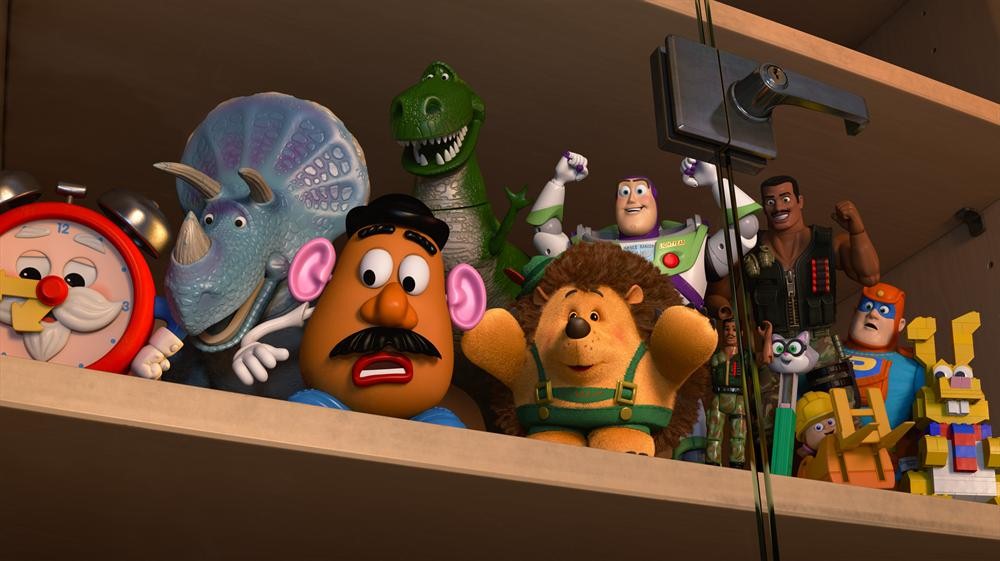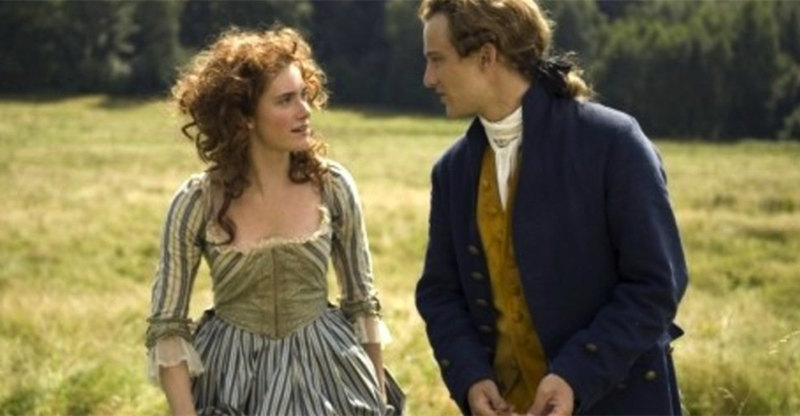Too often movies treat children like fragile china—beautiful, but easily chipped and broken. Sometimes, kids are stronger, more loyal and resilient than we know.
Maisie is one of those kids. The title character in “What Maisie Knew,” she’s a six-year-old whose mother Susanna and father Beale (Julianne Moore and Steve Coogan) are rolling and tumbling through the dissolution of their marriage. After the divorce, both parents re-marry: the father to Maisie’s nanny (Joanna Vanderham), and the mother to a genial bartender (Alexander Skarsgard). The second marriages are also less than successful. More lasting is the bond Maisie forms with both the bartender, Lincoln and the former nanny, Margo.
The basic conceit of “What Maisie Knew” is right there in the title. Everything is told from the little girl’s perspective. We only hear (and overhear) the conversations that Maisie hears, only see what Maisie sees. It’s a concept fraught with potential pitfalls of mawkish sentiment and overbearing cuteness. But it’s executed beautifully by directors Scott McGehee and David Siegel, who bring a perceptive eye and a clear-eyed tenderness to a story of adult choices reflected in the eyes of a child.
Cleverly updated and adapted from the novel by Henry James, screenwriters Nancy Doyne and Carroll Cartwright find just the right level of detail, not so much to spoil the concept, but enough so that viewers can connect the dots of adult behavior that mystify a little girl. The subtext unspoken between her parents, the small gestures of contempt or desire, the selfish choices made by adults for reasons they understand only a little more than a child. What we understand but Maisie doesn’t –these are treated with a poignant clarity and delicate, unforced touch.
Our sympathies lie with Maisie from the first frame, and later also with Lincoln and Margo, who understand so much better what a child needs. But the parents Susanna and Beale aren’t treated like monsters, either. They are given moments of grace, where they see through their own self-deceptions and realize, if only for a little while, what is best for their child. The absence of a ‘boogeyman’ figure is to the film’s credit.
Along with the screenplay, the choice of perspective also incorporates camera angles, framing, sound design, a host of smartly chosen technical considerations. The camera occasionally shoots from Maisie’s eye-level, with adults in frame only from the waist down. Maisie draws and plays by herself while the sound of an argument in another room filters in distantly, like a background noise she has grown used to without knowing why.
The adult cast is uniformly excellent, but as Maisie, young Onata Aprile brings an astonishing naturalness to the central role. Despite her parents’ self-absorption and neglect, Maisie is not a victim, not a china cup needing to be put on a shelf, only confused and hurting. The filmmakers clearly understand the inner strength of children in the face of heartbreak, and Aprile is a genuine, sympathetic presence. She sweetly and simply embodies that tenacious trust and resilience particular to small children, traits that can resist analysis in the moment, and that seem to fall away from us as we get older.
Video:
“What Maisie Knew” is presented in a “16 x9, 2.40 widescreen” format. This is a 2-disc Blu-ray/DVD combo pack. The quality is fine, especially in the many facial close-ups. There are English SDH and Spanish subtitle options
Audio:
The audio track is 5.1 Dolby TrueHD, and there is excellent attention to the details of the sound design. Off-screen conversation and noise plays an important part in the narrative, and it is nicely balanced with foreground sound.
Extras:
A rather dry, but still informative, directors’ commentary track with Scott McGehee and David Siegel, and a set of deleted scenes
Parting thoughts:
With a strong cast and a wonderful performance by six-year-old Onata Aprile in the title role, “What Maisie Knew” is a tender-hearted and perceptive film about the strength of children and the weaknesses of the adults they trust.


